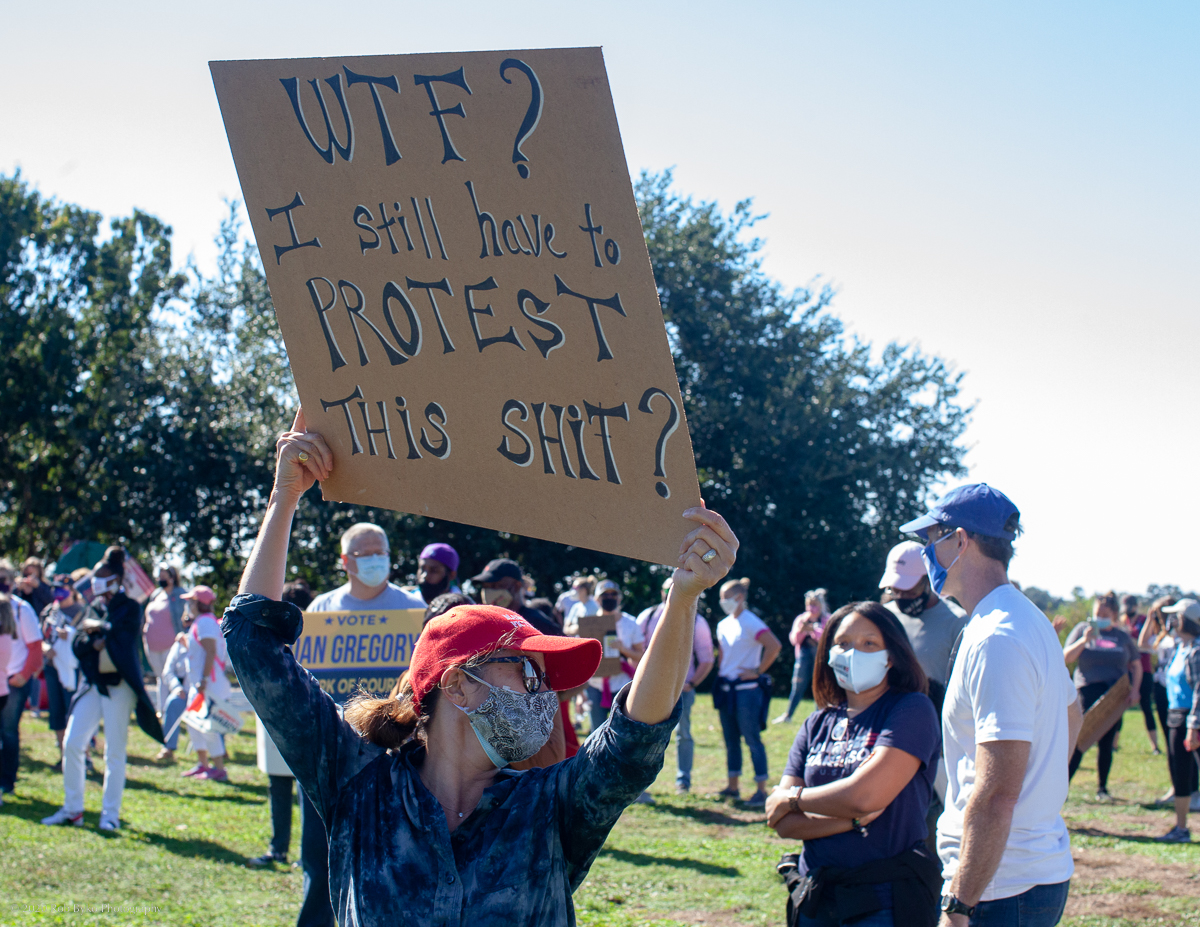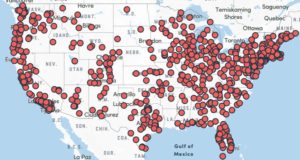
By Andy Brack, editor and publisher | Hundreds of South Carolinians are expected to march Saturday in Charleston, Columbia, Greenville and Myrtle Beach to send a strong message against a restrictive abortion measure, known as the “fetal heartbeat” law, that state legislators passed in February.
“The marches this weekend continue to highlight the still heinous attitudes toward women in South Carolina,” said Charleston women’s right’s advocate Jennet Robinson Alterman “Consider that women did not serve on juries until 1969. We have among the highest rates of infant and maternal mortality in the U.S.
“Women’s reproductive rights are practically nonexistent. Women are still paid significantly less than men to name just a few of the reasons we march and march and march.”

Saturday’s marches will coincide with scores of Women’s March events across the nation. Events in and around the Carolinas could attract thousands, organizers say.
“Supporters of reproductive health care are rallying to show our support for the right to legal abortion, said Molly Rivera, communications director for Planned Parenthood South Atlantic. “We also know that a right without access isn’t a right in practice.
“Decades of attacks on reproductive rights and health care by state legislators have already made abortion inaccessible for many people in South Carolina. And these same lawmakers have long made clear their intention to continue to pass as many laws as possible to stigmatize abortion and restrict access to care, if not block it entirely.”
In Charleston spurred on by restrictive anti-abortion legislation passed in Texas and South Carolina, more than 400 supporters are expected to meet at Charleston City Hall and walk to the U.S. Custom House just before midday Saturday.
“It’s a national call to action, after the law passed in Texas,” said Erica Cokley, an event organizer who also serves on Charleston County School Board. “We want to continue to send a unified message that we stand in solidarity … amplifying the voices of the marginalized and standing together for all women’s rights,” specifically standing with women of color, Cokley told the Charleston City Paper.
Other marches in and around the state:
- Columbia: March and Rally for Reproductive Rights and Justice, noon, Saturday,Martin Luther King Jr. Park, 2300 Greene Street, in Five Points.
- Greenville: The Mauldin/Greenville Women’s March, noon, Saturday, One City Plaza on Main Street.
- Myrtle Beach: Rally for Abortion Justice, 10 a.m., Saturday Chapin Park, 400 14th Ave North.
- Savannah: 11 a.m., Saturday, Forsyth Park Fountain, 2 West Gaston St.
- Augusta: 2 p.m., Saturday, The Augusta Commons, 836 Reynolds St.
- Charlotte: 11 a.m., Saturday, First Ward Park, 301 E. 7th St.
 “These events are multiracial, intergenerational and multilingual in recognition that a threat to abortion rights would impact all South Carolinians,” said Courtney Thomas, director of communications of the S.C. Women’s Rights and Empowerment Network in Columbia. “We invite all South Carolinians to participate because our leaders need to know that this issue is not niche, there are advocates who are willing to fight to retain their reproductive freedom.”
“These events are multiracial, intergenerational and multilingual in recognition that a threat to abortion rights would impact all South Carolinians,” said Courtney Thomas, director of communications of the S.C. Women’s Rights and Empowerment Network in Columbia. “We invite all South Carolinians to participate because our leaders need to know that this issue is not niche, there are advocates who are willing to fight to retain their reproductive freedom.”
South Carolina’s restrictive law
Under the S.C. Fetal Heartbeat and Protection from Abortion Act, doctors are forbidden to perform abortions if a fetal heartbeat is detected (with no exceptions in cases of rape, incest or medical necessity). Heartbeats are typically detected five to six weeks after conception — before most women even know they’re pregnant.
Though a federal court blocked the bill just a day after Gov. Henry McMaster signed it into law, pro-choice advocates fear if the issue makes it to a now-conservativeU.S. Supreme Court, it could jeopardize the precedent set by Roe v. Wade, the 1973 case that ruled women have the right to choose to have an abortion.
This fear was heightened after the Supreme Court refused to block a similar Texas bill signed into law in late May. The Texas bill takes abortion restrictions one step further by allowing citizens to sue individuals they suspect have provided an illegal abortion.
In an attempted response to pro-choice advocates’ dismay with the federal courts’ lack of interference, House Democrats approved the Women’s Health Protection Act last weeky. Though it’s considered unlikely the bill will make it through the Senate, Democrats have said they hope the measure will guarantee a woman’s right to an abortion and protect the Roe vs. Wade decision.
The Charleston City Paper’s Samantha Connors contributed to this story. Have a comment? Send to: feedback@charlestoncitypaper.com.
- Have a comment? Send to feedback@statehousereport.com















 We Can Do Better, South Carolina!
We Can Do Better, South Carolina!